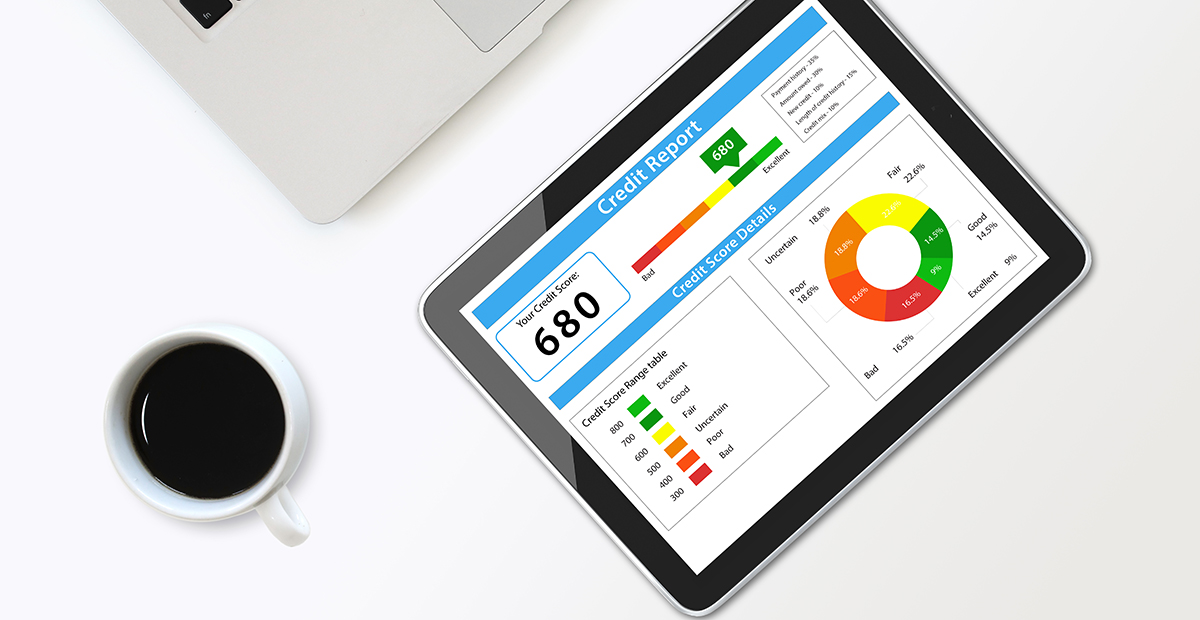If you could pull out your crystal ball as a teenager or young adult and look into the future, there are a few things you might see right away. You might see yourself attending trade school or college, driving around in a shiny new car, buying a home or traveling the world. It may look different for everyone, but many of those dreams have one thing in common: you need credit to achieve them.
Building credit and earning a credit score is a chicken/egg sort of problem; it’s hard to build credit without already having some. However, it can be done! Follow this five-step plan to help you build credit from the ground up.
Step 1 – Do your homework
Credit can be a lot like that crystal ball—a little fuzzy and hard to decipher. Start by doing research and a little light reading to learn why credit is important and what credit is and how it’s built. Once you have a handle on how it works you can start reaching your goals faster while avoiding common missteps along the way.
Step 2 – Establish the right mindset
The most important thing about building credit: only do it if you can do it right! A poor credit score can hold you back just as much as having no credit and can take a long time and a lot of work to repair. You never want to take on debt without a clear purpose in mind and the ability to pay it off. Whether it’s a credit card or a loan, you are paying other people (in the form of interest) to borrow that money and pay it back later. Credit (or debt) is not free.
Plan to pay off your credit card bill in full every month so you don’t have to pay interest but still earn rewards and build up your credit score. Only take out a loan for something it would take too long to save up the cash for—like a car you need now or a house. Even then, try to put down as much cash as possible to minimize your payments and decrease the interest you’ll pay.
Step 3 – Get a jumpstart from family or friends
Once you’re ready to start building your credit, the easiest way to get started is working with someone you know. If a family member has good credit and is willing, they can sign on to a joint account or add you as an authorized user on their credit card. You don’t even have to use the card, but it can still boost your credit score! One caveat: you are tying your credit to someone else and vice versa, so make sure you both intend to pay the bills on time.
You can also ask a relative to co-sign a loan with you. Only do this if there’s something you actually need a loan for, like to buy a car, and the same rules apply. Make sure you take good care of each other’s credit!
Step 4 – Start small
The next way to build credit is to get a credit card on your own. This can be easier if you started with Step 3, but there are credit cards available to people without any credit history. These cards likely will have lower credit limits, higher interest rates, few or no rewards and they might also have an annual fee. Some cards with lower credit limits even have low rates and no annual fees like Verve’s RateFirst MasterCard®.
You may also be able to get a secured credit card, which means you’ll need to put up some kind of collateral to ‘secure’ it, like a $500 deposit. This means your credit limit on the card will be $500. Be sure to pay off the balance each month like you would a regular credit card, as your payment history goes on your credit report and is helping you build credit.
Step 5 – Take your credit to the next grade-level
The next step in building your credit is to get some kind of loan. This can include student loans or an auto loan. You may also be able to get a credit-builder loan, which is a small loan that you actually pay for before you get the money. The financial institution puts the amount into an account, and you make the payments (plus interest) until the full amount is paid, and then you can access the cash. Bonus: you’ve now built up a credit history and this money makes the perfect start for an emergency fund!
Building good credit is just one step to a solid financial future. Budgeting your money, saving for the proverbial ‘rainy day’ and investing wisely are all key parts of managing your finances so you can buy that dream house, take that trip to Tahiti or whatever you dream of. Want a little extra help? Try out Verve’s free financial literacy and coaching.






 Federally Insured by NCUA |
Federally Insured by NCUA |  Equal Housing Opportunity |
Equal Housing Opportunity |